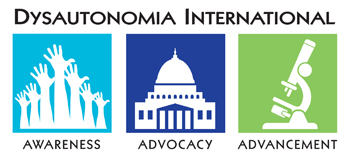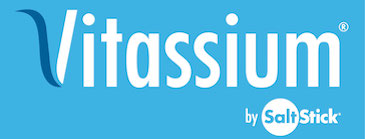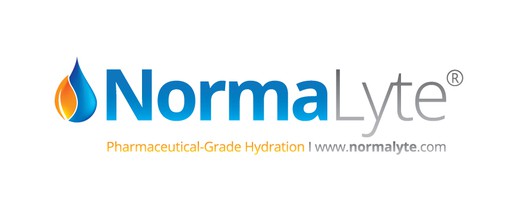
Dysautonomia International is pleased to announce the availability of up to $800,000 in research grants during our 2022 grant cycle. Dysautonomia International has funded over $3M in research grants to date, with the goal of improving diagnosis, treatment and quality of life for people living with autonomic nervous system disorders. The funding opportunity is open to researchers in any country.
During the 2022 grant cycle, Dysautonomia International research grants will be available to study the following disorders:
- postural orthostatic tachycardia syndrome
- neurocardiogenic/vasovagal syncope
- inappropriate sinus tachycardia
- idiopathic orthostatic intolerance
- autoimmune autonomic ganglionopathies
- autoimmune autonomic neuropathies
- idiopathic autonomic neuropathies (including small fiber neuropathies)
- gastrointestinal disorders due to autonomic dysfunction or autonomic neuropathy
- autonomic dysfunction and other manifestations of Long COVID
FUNDING AVAILABLE
$500,000 is available from our POTS Research Fund, with grants capped at a maximum of $100,000 each. These applications must be focused on postural orthostatic tachycardia syndrome. POTS Research Fund priority areas include:
- imaging studies that explore structural neurological, vascular and orthopedic findings that may contribute to symptoms;
- studies identifying new biomarkers or better explaining the role of existing biomarkers;
- neuropathological findings;
- studies exploring the safety and efficacy of new or existing pharmacological treatment approaches;
- studies exploring biological mechanisms that may explain co-morbidity relationships (e.g., POTS, EDS, MCAS, CSF leaks, autoimmune diseases, etc.);
- the development of research tools and infrastructure, especially those needed to support collaborative multi-center studies; or
- studies addressing racial disparities in clinical care or research.
$100,000 is available from our Dysautonomia Research Fund, with grants capped at a maximum of $50,000 each. These applications must be focused on one or more of the following conditions: neurocardiogenic syncope, inappropriate sinus tachycardia, idiopathic orthostatic intolerance, autoimmune autonomic ganglionopathies, autoimmune autonomic neuropathies, idiopathic autonomic neuropathies (including small fiber neuropathies), or gastrointestinal disorders due to autonomic dysfunction or autonomic neuropathy. Dysautonomia Research Fund priority areas include:
- imaging studies that explore structural neurological, vascular and orthopedic findings that may contribute to symptoms;
- studies identifying new biomarkers or better explaining the role of existing biomarkers;
- neuropathological findings;
- studies exploring the safety and efficacy of new or existing pharmacological treatment approaches;
- studies exploring biological mechanisms that may explain co-morbidity relationships (e.g., POTS, EDS, MCAS, CSF leaks, autoimmune diseases, etc.);
- the development of research tools and infrastructure, especially those needed to support collaborative multi-center studies; or
- studies addressing racial disparities in clinical care or research
$100,000 is available from our Long COVID Research Fund, with grants capped at a maximum of $50,000 each. These applications must be focused on understanding autonomic dysfunction in Long COVID and/or treating autonomic dysfunction in Long COVID. The project may also capture data on other biomarkers or aspects of Long COVID as well, but an autonomic assessment must be part of the study. We welcome applications that seek supplemental funding for existing grants, so that autonomic assessments can be added to the existing study, especially clinical trials.
$100,000 is available to provide equipment grants of up to $15,000 each to autonomic labs that wish to purchase transcranial doppler devices to be used during tilt table testing for research and clinical purposes. This research equipment funding can be requested as supplemental funding to one of the above grant programs, or as a stand-alone equipment funding request. Please see the Transcranial Doppler Matching Funds application requirements for details.
THE APPLICATION PROCESS
The information below describes the two-stage application process for POTS Research Fund, Dysautonomia Research Fund, and Long COVID Research Fund applications. The first stage requires the submission of a Letter of Intent (LOI), providing basic information on the proposed project. In the second stage, selected applicants will be invited to submit a more comprehensive application. Detailed budget justifications and study protocol information will be required during the second stage of review.
For the Transcranial Doppler Matching Funds, please see the separate application requirements.
WHO CAN APPLY?
Any investigator capable of conducting serious academic research can apply for a Dysautonomia International research grant, from any country. We encourage early career applicants to apply with appropriate supervision or collaboration with experienced researchers. All applicants must obtain Institutional Review Board approval, or its foreign equivalent, prior to funding being issued. All projects must be designed with the intent to publish the findings in a peer-reviewed journal. There is no limit to how many research grant proposals can come from one applicant or institution.
IMPORTANT DEADLINES
Letter of Intent Due: September 10, 2022
Applicants Notified of LOI Decision: September 15, 2022
Full Application Due from Invited Applicants: November 1, 2022
Grant Recipients to be Notified: on or about December 15, 2022
LETTER OF INTENT INSTRUCTIONS
Interested applicants should submit a Letter of Intent (LOI) on their institutional letterhead, on or before September 10, 2022, describing the proposed project via email to research@dysautonomiainternational.org. The LOI should be no more than three pages, inclusive of references and attachments. Late LOIs or LOIs that exceed the three-page limit will not be accepted. The LOI should explain:
- which autonomic disorder(s) the proposal is focused on
- the hypothesis and aim(s) of the study
- the testing/data collection proposed
- the number of disease subjects and controls involved
- the cost of the total project
- the amount of funds requested from Dysautonomia International
- whether similar studies have already occurred
THE REVIEW PROCESS
LOIs and full applications will be reviewed by our Board of Directors in consultation with members of our Medical Advisory Board, Patient & Caregiver Advisory Board, Long COVID Research Fund Advisory Board, and independent experts for scientific merit, likelihood of success, meaningful impact on the lives of dysautonomia patients, and other factors. All reviewers have agreed to keep information learned during the review process strictly confidential using signed Confidentiality Agreements.
CONTACT INFORMATION
Please feel free to ask questions about the overall grants process before applying. Contact research@dysautonomiainternational.org.
DONATIONS WELCOME
Dysautonomia International is able to fund this important research through the generosity of many donors, large and small. If you would like to support our Dysautonomia Research Fund, POTS Research Fund, or the Long COVID Research Fund, we invite you to contribute at CureDys.org. 100% of donations to the Dysautonomia Research Fund, POTS Research Fund and Long COVID Research Fund go directly to research grants.
| | |



